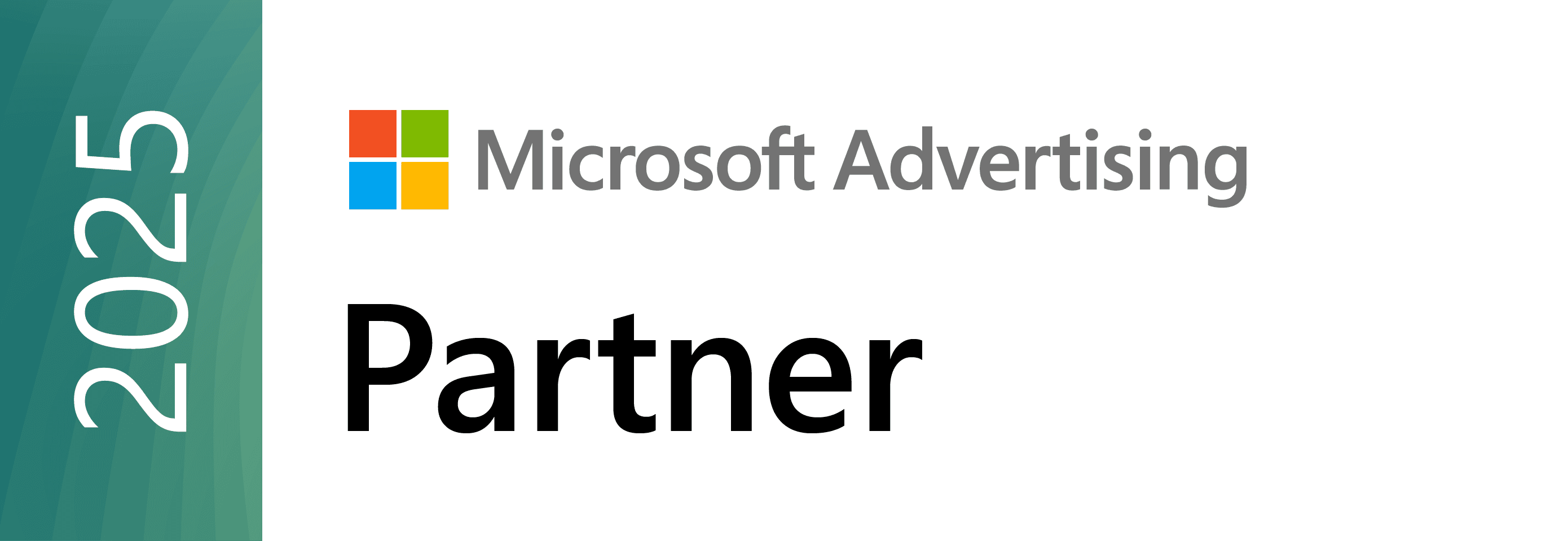If someone can’t remember the name of an actor in a TV show, they Google it. If someone has a strange symptom that they’re worried about, they Google it. And, if people are considering buying a good or service, the odds are high that they’ll Google that, too.
Businesses who show up higher in search engine results pages (SERPs) have a decisive advantage in reaching potential customers. It’s no surprise then that, in 2021, companies are expected to spend tens of billions of dollars on search engine optimization (SEO).
SEO works, but it takes time — and it’s important to know just how much before you start investing.
In this blog, we’ll walk you through average timelines for SEO results, using case studies from our own work, as well as industry research.
How Long Does SEO Take?
On average, organic SEO efforts will take anywhere from six to 12 months to achieve measurable results. (Google’s official timetable is four to 12 months for an SEO agency, but we stick with a more conservative estimate, just in case.)
Slow organic performance changes are a deliberate choice on the part of search engines. It takes time to carefully vet all potential web pages and find the highest quality ones for serving up in the SERPs.
Don’t worry: You don’t have to wait four or six months to see any results. Some aspects of SEO will yield results more quickly.
Think of SEO as a garden. In this garden, you plant many different seeds. Some mature quickly and bear fruit within weeks. Others take months or years to be ready. If you want to eat from that garden year-round, you need to be planting a variety of crops and harvesting according to the seasons.
Similarly, a diversity of SEO techniques will yield a cascade of results — some earlier, some later, but ultimately self-sustaining. For this reason, when viewed over time, a quality SEO strategy more than pays for the initial investment.
Results Time Frame for a New Website
If you have a new website and follow basic best practices and simple local SEO, you can start ranking for branded search (searches for your business by name) within one to three months. This is a logical first step and a good first target for your SEO efforts.
The next goal: Start ranking for long-tail keywords and low-competition searches.
Let’s say you have an auto parts store that stocks mostly Honda parts, including parts for collectible models. Searches for terms like “auto parts” and even “Honda auto parts” are going to be highly competitive and will likely take years to rank for, if it’s even worth the effort.
On the other hand, it’s comparatively easy to rank for long-tail keyword searches like “how to rebuild the carburetor on a Honda s600.” You can start ranking for keywords like this (and hopefully selling a few carb rebuild kits) within two to three months.
This isn’t just good for gauging your current SEO progress; it can also provide firm support for future SEO campaigns — like the fast-growing corn plants that beans can cling to for support.
Expanding your SEO efforts to rank for more competitive terms is likely going to take a year or longer. A 2017 study by Ahrefs showed just over 1% of top-ranked pages are a year old or less. In fact, only 5.7% of pages reach a rank on the first page of results within a year — and, when they do, it’s for low-volume keywords.
Results Time Frame for an Established Website
The average results turnaround for established websites can be shorter in some ways, but there is also less low-hanging fruit to grab, especially when you’re already ranking for branded search and relevant low-volume keywords. Depending on the challenges your site faces, you might be able to see significant results within a few months — or it might take a year or more to see the results you’re hoping for.
Pruning low-quality content can provide a relatively quick boost to your SEO results. In 2019, we recommended that a client prune the worst 10% of their content. When they did, their clicks and impressions grew almost immediately.
Within three months, they had more than doubled the sessions on their website from organic searches and saw their revenue increase by 64% from strategically targeted content.
Other content changes can take longer to show results.
Another example: Using a long-term SEO strategy, we updated the content on one client’s website to specifically improve Expertise, Authoritativeness, and Trustworthiness (E.A.T.) signals. The campaign took 14 months to see measurable results — but, like a snowball, our content updates grew more significant over time. A blog updated in April 2021 took almost two months to see a traffic spike, while one updated in May saw its organic traffic increase by 1100% in one month. And, by July, the entire site’s revenue from organic search had increased by 300% year-over-year (YOY).
Some simple and inexpensive changes act as a gentle nudge that alter the course of your website. They take time to show results, but, when they do, they can be significant. For example, just changing the descriptive copy on category pages increased organic sessions for one of our clients by 46% — but it took 18 months to really register the change.
Let these case studies be a reminder: Although we often talk about page rankings as the measure of success for SEO, other metrics are actually more important in the long run. Increased traffic, sessions, page views, and (of course) revenue are the goals of SEO. Ranking is just a means to those ends, not the end-all, be-all of SEO success.
How Long Does It Take for Google to Update SEO Changes?
Google’s search bots are constantly crawling the internet to confirm they’ve indexed all new online content as quickly as they can. However, for your website, this might not be as fast as you’d like. On average, it can take a few days to a few weeks for most websites to get crawled.
If you want to speed up the process a little bit, you can request re-indexing.
Will re-indexing automatically improve your ranking in the SERPs? Sometimes, it will lead to immediate, visible jumps. Other times, re-indexing just puts your content in competition with other relevant sites, and it will take months for your content to bump its way up the SERPs.
7 Factors Impacting Your SEO Results Timeline
We’ve demonstrated how variable the SEO results time frame can be, ranging from one month all the way up to a year, depending on the site and your goals.
Understanding the factors that contribute to this timeline can help you estimate how long SEO might take to show results for your website.
1. Strategy
How long SEO takes will depend on the mix of strategies you deploy.
- Technical SEO is usually the fastest way to see results. This approach involves improving your site’s performance, structure, and ability to be indexed by search engines (all important ranking factors). The good news: Fixing these problems can improve your ranking in the SERPs almost as soon as the site is re-indexed. The bad news: Unless your site was in really bad shape, the bump you’re going to see from this will be relatively limited at first.
- Content marketing is another important aspect of on-page SEO. Adding great content is a reliable way to improve rankings, but it can take two to 12 months to mature.
- Link building is key to long-term SEO success, but it also takes some time to achieve. People have to find your (currently poorly ranked) content and link to it. An SEO strategist can help with link outreach, but it still takes time to build trust and gain those links within a certain industry. Remember: That’s the point.
- Site migrations are generally the slowest SEO strategy. In our garden metaphor, this is digging up the garden and replanting elsewhere. Some things can be transplanted, but in many ways you’re starting over. That’s why we recommend this strategy sparingly. But, in some cases, it can bring big results, especially if you time it right. We recommend site migrations during the off season or when outside factors (like the pandemic) are already depressing your search traffic.
Remember: All these aspects of SEO work together. Technical SEO makes it easier for content to be found and helps provide a good user experience. Good content and a positive experience in turn help recruit inbound links.
A multi-pronged strategy will bring the best results for your eCommerce site.
2. Budget
To some extent, your budget can speed your SEO efforts. If you pay to fix all your technical SEO at once, add content faster, and do more linking outreach, you’ll see faster results.
There are also limits to the amount your SEO agency can speed the process. It’s like adding fertilizer to the garden. Peas might grow faster, but it’s still not instant.
While we’re on the subject of budget, it’s worth mentioning what SEO costs.
Your SEO budget depends on your goals and resources. Small business owners might spend less than $1,000 a month on SEO. A medium-sized company can expect to spend at least $3,000 a month for SEO services, more than a quarter of all companies (and 45% of all companies with 500 or more employees) spend more than $20,000 a month on SEO.
To find out more about the cost of our SEO services, contact our team anytime.
3. Desired Timelines
Similarly, you can set the time frame for your SEO efforts. You might want to ease into your efforts with a low budget at first, then increase as you start to see results. Or, if your products have seasonal demand, you might want to see results by a certain time.
Understand that SEO isn’t just a matter of getting on top. You often have to work to stay there, which means you can’t abandon efforts once you stop ranking. Google’s algorithm is always changing, which means your digital marketing agency needs to constantly be optimizing your strategy, too.
4. Competition
Remember that you’re competing with other companies that are also actively engaged in SEO. The more competitive the keywords you’re targeting, the longer it will take to rank and see traffic from them.
Keyword research can reveal the competitiveness of terms relevant to your industry. Ask your SEO expert about your search market, and gauge your timeline expectations accordingly.
While it might only take two months to rank for the least competitive keywords, it can take two years (or more) of hard and expensive work to rank for some of the most competitive search terms out there.
5. Website History
Earlier on, we discussed how the SEO time frame differs for brand new and established websites. In general, domain age for a website relates to the ability to rank highly. With equivalent optimization, older websites tend to show up higher in the SERPs than younger ones.
However, your website history can also hold you back. If you’ve done black hat SEO in the past (such as paid backlinks and keyword-stuffed content), it can take time to disavow your entire backlink profile and prune content before you see results.
In some situations, your old site’s history might make a migration the best option.
6. Backlinks
Building backlinks is one of the longer-term strategies for SEO. It’s vitally important, but it can take time. Just how much is highly variable.
Some industries and communities are very open and willing to embrace newcomers. In these industries, it’s easy to generate backlinks for a new company and/or website. Other industries are more suspicious of new companies and wary of linking to new content. It takes longer to earn their trust and their quality links.
Your social media profile can make a big difference here, too. If you have good engagement on one or more social media sites, it can help you build a strong backlink profile relatively quickly.
It also takes time to see the effects of a link on your rankings. This 2022 link-building survey suggests an average of three months for a link to impact your SEO results, although it can vary from 1-6 months.
Good links represent an endorsement of trust. While you can sometimes find companies and individuals that will promise to get you backlinks, you should avoid paid backlinking strategies. Sure, these strategies can sometimes yield short-term results — but, more importantly, they can also lead to penalties from search engines once you are discovered.
This can cause an extreme demotion in the SERPs that hinders your future SEO efforts — sometimes to the point where you essentially have to start over again with a new website.
7. Algorithm Changes
Google and the other search engines constantly update their search algorithms to improve the quality of search results.
Usually, high-quality content and good technical SEO means that these changes will speed your rise through the SERPs. However, sometimes an algorithm change will suddenly prioritize something other than what your website was built to deliver, leading your site to suddenly fall in the rankings.
At that point, you’ll need to re-evaluate your SEO strategy, refocus your efforts, and accept that your climb is going to take longer.
While there’s not much you can do to prevent this from happening, employing a long-term SEO agency can get you back on your feet quicker.
Our Advice: Start Your SEO Efforts Today
In the SEO world, we have a running joke. The answer to every question? “It depends.”
And it’s certainly true when it comes to the average SEO results timeline.
SEO efforts always take time. Whether that’s four months or 12, you’ll get the results you want sooner if you start optimization now.
As they say, the best time to plant a tree is 20 years ago. The second best time to plant one is today.
If you’re not sure which SEO efforts will improve your website fastest or give you the most bang for your buck, reach out to our strategists at any time for a free proposal. They can evaluate your site and present the best plan of action for efficient and timely SEO improvements in line with your business goals.
In the meantime, explore any of our SEO case studies for actionable marketing strategies to test on your site today.











I am searching or best post and finally find it,
dear thanks for sharing !!
google is constantly updating and improving the algorithm that crawls and indexes pages, as well as improving the functionality of the search engine.
Back when SEO started to enter the scene in digital marketing strategies, there were plenty of shortcuts or tricks like keyword stuffing to play on the algorithm to get higher results.
Hi Alex! Thanks for sharing this blog post of yours.
It was very informative and interesting as I read this whole article.
Looking forward for more of your posts.